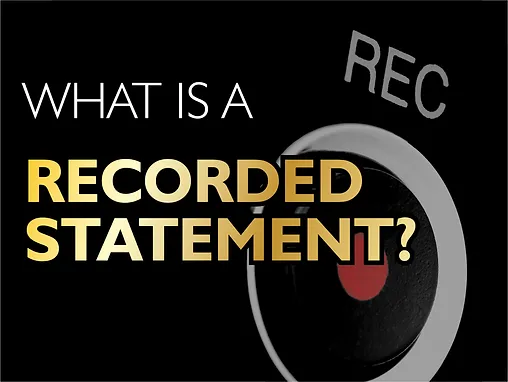Recorded statements are taken by your insurance company to try and get an understanding of what happened in the accident through a recorded line. Before agreeing to do a recorded statement, you may want to contact a car accident lawyer.
3 Reasons you should not give a recorded statement without an accident attorney present
#1 You are not legally required to give a recorded statement
For your accident claim to be processed, the insurance company may suggest a recorded statement be provided. Florida, however, does not have a law that requires you to give an insurance company a recorded statement.
Insurance companies, including your own, do not protect your rights. That is because it is in their best interests to pay you less than you deserve, and they will take any opportunity to do so, if given the chance.
#2 Your statement can be used against you
When you are involved in an accident, you may feel flustered, in pain, or even in shock. You may make statements that are contrary to the police report or mention theories (“I thought they retreated first, but maybe not…“)out of fear. It’s important to remember an insurance adjuster is an experienced interviewer and may try to manipulate a certain answer out of you. The statements you make on that recorded line can then be used against you and lead to your claim being reduced..
#3 Florida’s No Fault State Rule
In Florida, car accidents fall under a no-fault system. This means that regardless of fault, your own insurance company is responsible for paying for your damages, and the other driver’s insurance is responsible for paying for their damages.
However, in some cases, determining fault may become necessary. For instance, if the damages are severe, or if there is a dispute over who caused the accident. In these situations establishing fault may be critical in determining which insurance company is responsible for paying for the damages. It is advisable to consult with an experienced car accident attorney who can help guide you through the process and protect your rights.
What’s the difference between a recorded statement and an Examination Under Oath (EUO)?
The purpose of both the EUO and a recorded statement is to get your account of the accident and its aftermath. Both types of questioning have the same tactics used to catch you in a lie or to try to make you admit to a certain degree of guilt.
In this video, our accident attorneys Victor Demesmin Jr. and Jeremy Dover, go over the answer to all of these questions. They speak about how these answers can affect you if you’ve been in an accident in the state of Florida.
So what should I do if my insurance company is trying to take a recorded statement?
If you’re dealing with an insurance adjuster who is demanding a recorded statement, it’s important to stay mindful of your rights. Politely end the conversation and consider contacting an experienced attorney, like the car insurance claim lawyers at Demesmin and Dover Law Firm.
They can provide guidance on how to state what occurred to your insurance company and what the terms of the recording will be. Don’t let an adjuster pressure you into anything that could harm your case. Call Demesmin and Dover law firm now at 866-954-MORE (6673) and be one step closer to gaining the compensation you deserve.



